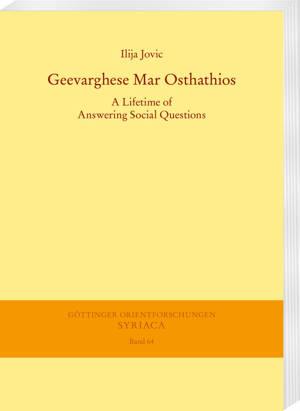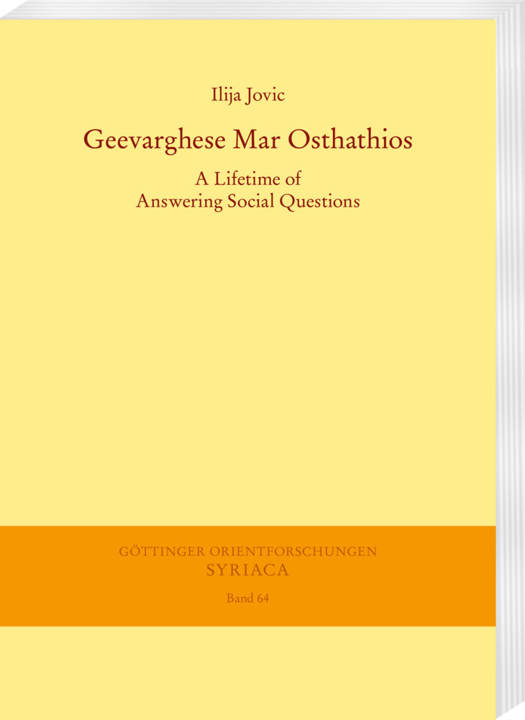
- Afhalen na 1 uur in een winkel met voorraad
- Gratis thuislevering in België vanaf € 30
- Ruim aanbod met 7 miljoen producten
- Afhalen na 1 uur in een winkel met voorraad
- Gratis thuislevering in België vanaf € 30
- Ruim aanbod met 7 miljoen producten
Zoeken
€ 113,95
+ 227 punten
Omschrijving
Geevarghese Mar Osthathios (1918-2012) was a South Indian Orthodox theologian whose theological reflections are a unique combination of Protestant principles and Orthodox ethos. His life and work contextually occupy a significant place in the development of the Malankara Orthodox Syriac Church. In addition, his preoccupation with missionary work in Indian conditions has been intertwined with ecumenical currents of the second half of the 20th century. The central expression of his theology lies in the Trinity as for him Trinity has relational implications on socio-political level, its relevance and the applicability as a critique of societal systems of governing. Therefore, the book by Ilija Jovic deals with the focal points of his Trinitarian theology, missiological as well as ecumenical perspectives and their social consequences. Moreover, by determining and critically examining Mar Osthathios argumentation that structuring of society should be based on the model of the Trinity, Jovic's study takes precedent in giving concern to social challenges within the Oriental Orthodox Theology.
Specificaties
Betrokkenen
- Auteur(s):
- Uitgeverij:
Inhoud
- Aantal bladzijden:
- 172
- Taal:
- Engels
- Reeks:
- Reeksnummer:
- nr. 64
Eigenschappen
- Productcode (EAN):
- 9783447119177
- Verschijningsdatum:
- 10/11/2022
- Uitvoering:
- Paperback
- Formaat:
- Trade paperback (VS)
- Afmetingen:
- 171 mm x 13 mm
- Gewicht:
- 6477 g

Alleen bij Standaard Boekhandel
+ 227 punten op je klantenkaart van Standaard Boekhandel
Beoordelingen
We publiceren alleen reviews die voldoen aan de voorwaarden voor reviews. Bekijk onze voorwaarden voor reviews.







